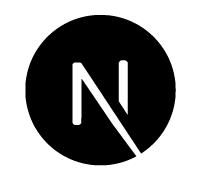 One tree
One tree One life


As a proficient NodeJS development company, we possess wide experience in building NodeJS-based web and mobile applications. Be it client-friendly websites or eCommerce portals, our skilled Node JS developers are apt at fulfilling client requirements, at the finest. Within stipulated deadlines, with utmost quality adherence and the best of project management skills, our Node JS development services are best leveraged for fastened real-time apps, network apps, and high-traffic web apps.
NodeJS, being one of the most preferred technologies, for top leading companies today, has carved a niche for itself. Our NodeJS development services offer high-quality and effective coding using JavaScript, attending to both – frontend as well as the backend.

With SPEC India's dedicated development team model, you can have the right team of top talents with Node.js development skillset to meet your development requirements. We provide easy access to a dedicated team through a quick hiring process and engagement models. You can also scale the team to address changes in your development requirements.

Being a top Node JS development company in India, our developers understand that every business has a discrete Node.js development requirement, which is why our developers tailor development solutions for developing scalable, secure, high-performing Node.js apps with custom requirements, sizes, and complexity. We prioritize executing the changes in features and functionalities to meet your business needs and project requirements.

Our Node.js developer would develop scalable, robust, secure, ready-for-use REST and JSON API for your requirements. You can also integrate your existing API with the existing technologies or any solution to enhance your application's technical performance. Our team of developers offers a data-intensive scalable solution from implementation to the integration of custom APIs.
Regardless of the platforms being PHP, JAVA, or .Net, our Node.js developers have migrated many applications to Node.js. To increase the performance, scalability, user experience, and eliminate particular weaknesses of the existing platform or framework, our team would leverage comprehensive Node.js resources and offer schema and DB migration using Node.js.

Our developer would build and customize plugins to enhance performance, add new features and functionalities, and write the backend of your application in JavaScript. These plugins enable customizations and expansion even in a minimalist product. Our developer's extensive plugin creation skills would contribute to application enhancement regardless of the business size.
From helping you with scaling, bug detection, code review, and performance issues to implementing web development best practices based on your project specifications and business vertical, our Node.js Consulting service has got you covered. Our Node.js development team also provides complete FE/BE maintenance and support services to regularly update, scale, and enhance the performance of your application.

A prominent Node JS development company in India we offer comprehensive NodeJS development services that unleash the potential of this innovative technology and assist clients to empower their businesses with data-critical and real-time applications.
Express.js is a fast, unopinionated, flexible, asynchronous, single-threaded, minimalist web framework for Node.js.it provides a robust set of features for quick and easy web application development. It is ideal for designing public HTTP APIs or single-page, multi-page, and hybrid web applications. It offers ease of routing through its robust API. Its other features include high test coverage, content negotiation, high performance, and more.

Meteor is an ultra-simple, mature, open-source, full-stack JavaScript platform. It enables seamless integration with the existing frameworks and tools. Developers can offer a smooth user experience of app updates over the web, iOS, Android, or desktop as it uses the same code for all devices. This framework offers effortless scalability of your app to increase the app usage to millions of users.

It is a React-based framework that enables developers to build efficient, robust, scalable, server-rendered react-based web applications. As the structure is built on React, it offers additional functionality and structure. Next.JS is a powerful framework which brings in various features like automatic routing, hot code reload, automatic code split, built-in typescript support, node ecosystem, component-specific styles, and more.

Hapi or Hapi.js name is acronym of Http-API. It is an open-source Node.js framework secure, powerful, and scalable applications. It is Walmart’s stand-alone framework which was built with the object to handle traffic on the busiest days of online shopping like black Friday. Its features are manageable, controllable, and distributable code, minimal overhead, out-of-the-box functionality, integrated authorization, rich ecosystem, and end-to-end code hygiene.

Sails.js or Sails is an MVC framework on top of JavaScript runtime. This library allows the developer to build scalable and production ready Node.js web API. It is the ideal choice for developing custom, enterprise-grade Node.js apps. Its features include auto-generated REST APIs, easy WebSocket integration, front-end compatibility, powerful database support, and commercial support.
iOS app development services refer to creating an iOS app for Apple devices using Objective-C and Swift programming languages. Our expertise in iOS app development includes UI/UX design, development, quality assurance, deployment, and maintenance leveraging modern languages, tools, and frameworks.
Android is the world’s most powerful mobile platform with millions of android apps, devices, frameworks, and developers. Our Android app development services aim at offering a seamless and intuitive mobile experience for businesses and enterprises. Mobile apps help businesses better know their customers, deliver a personalized experience, and build brand value.
Progressive Web Application is a type of web application with an app-like appearance and navigation delivered through the web. PWAs are made using web technologies and WebAssembly to deliver an app-like experience with modern functionalities. SPEC INDIA stays on top of trends by constantly learning and experimenting with the latest technologies and concepts.
Hybrid apps are built by combining the best of native features and web technologies to deliver a cross-platform mobile experience. A hybrid mobile app is created once and can run on multiple platforms such as Android, iOS, and Windows. It is an easier, faster, and less expensive way to build a hybrid app compared to a native app.
Cross-platform app development is a popular choice for today’s businesses as it saves time, reduces cost, and at the same time helps you cater to wider audiences. It enables businesses to build an app and deploy it to multiple platforms without changing much of the code. Cross-platform development offers significant benefits with a huge ecosystem of frameworks, developers, and tools.
React is a popular JavaScript library for building user interfaces. It is a top-rated cross-platform, flexible, and open-source library maintained by Meta. It is one of the most commonly used frontend libraries for web and mobile. We also build cross-platform apps using React Native, a popular cross-platform mobile app framework for building apps for iOS and Android.
Built on TypeScript, Angular is a component-based, open-source web application framework by Google. Our Angular development services serve businesses of all sizes and deliver tailored-fit solutions. Our expertise in Angular web development delivers customized, scalable, and high-quality web applications, web portals, SPAs, and dynamic web apps.
Vue is a modern JavaScript framework to build captivating user interfaces with intuitive API, powerful features, and a declarative and component-based programming model. Vue.js is considered one of the top frontend UI frameworks and is loved by developers and businesses alike. It is versatile and used to create web user interfaces that are truly native and visually rich.
HyperText Markup Language is one of the core technologies for creating web pages. HTML is the foundation of all web pages and is often used with CSS and JavaScript to write pages to be displayed in a web browser. Our experienced web developers craft responsive, intuitive, user-friendly, and interactive web and mobile app user interfaces.
Cascading Style Sheets (CSS) is a stylesheet language used to style HTML elements. It describes how HTML components should appear in a document. It is used along with HTML and JavaScript and is considered one of the important technologies in the foundation of the web. CSS is widely used in front-end web development for web styling.

MySQL is a free and open-source relational database management system suitable for data warehousing needs and large online transaction processing (OLTP). Boost performance and achieve agility, reliability, and uptime with the MySQL platform. MySQL is one of the widely-used databases and meets almost all the requirements of today’s businesses.

We help modern businesses streamline data collection, data migration, and data integration using powerful tools and technologies. SQL Server offers many features for data collection, integration, management, analysis, and reporting. Microsoft SQL Server is a relational database management system ideal for server applications.
Oracle SQL is a multi-model database management system developed and maintained by Oracle Corporation. It is used for running data warehousing, online transaction processing, and database workloads. Oracle SQL offers easy and robust architecture for accessing, maintaining, and refining data.

PostgreSQL is a powerful, open-source RDBMS offering extensibility, advanced features, and SQL compliance. We work with PostgreSQL to address your data warehouse and data storage needs with its robust features such as stability, high levels of resilience, integrity, and accuracy.
MongoDB is a NoSQL and cross-platform database used extensively by developers to create highly available and scalable applications. It is a popular document database based on JSON-like documents that power faster, flexible, performant applications. Our developers are well-versed with database technologies, data platforms, and analytics that allow them to solve complex data challenges.
Selenium is an open-source project offering a range of software testing tools and libraries. It is the automated testing software for testing web applications across different web browsers. Selenium automation testing service offered by SPEC INDIA covers functional testing and regression testing needs using automation
Appium is another popular mobile test automation framework for testing native, hybrid, and mobile web apps. With cross-platform support, open-source community, and flexibility, it is used widely by quality assurance engineers to perform automated app testing on different platforms like Android, iOS, and Windows.
Apache JMeter is open-source software designed to load test functional behavior and performance. This Java-based load testing tool is used to analyze performance and measure the load of dynamic web applications. It is loved by testers and developers to gauge software performance with out-of-the-box features and testing capabilities.
Developed by Micro Focus, LoadRunner is a software testing tool used to test applications, measure performance and load. It is built to simplify load testing with powerful features and support for a wide range of protocols and many technologies environments. LoadRunner offers an environment for flexible and continuous testing with easy scripting.
Formerly known as QuickTest Professional (QTP), Unified Functional Testing is automated testing software from Micro Focus. It offers a functional and regression test automation environment with a graphical user interface. It allows QA testers to test all three layers of software applications using a single console.
Node.js is a popular, open-source JavaScript framework that writes JS on the client-side as well as the server-side and helps big time in the creation of scalable network apps. It is event-driven, asynchronous, light-weighted, effective, and follows a non-blocking process. Hence it is ideal for applications that are data intensified across different devices.
Node.js follows a single-threaded and event-driven model which allow it to handle simultaneous requests making it very useful for the enterprises having a large user base. While other architecture creates another thread upon new request, Node.js handles everything within a single thread with the help of asynchronous I/O and event-driven architecture.
We have observed a dramatic rise in cross-platform app development over recent years. Writing one code base and using it for different platforms with little or no modification made it popular among cost-savvy business owners. Node.js is itself cross-platform runtime environment enabling developers to utilize JavaScript to build stellar cross-platform apps for web and mobile.
Node.js supports microservices architecture which is powerful, highly-beneficial, and suitable for the organization of any size. The combination of Microservices and Node.js is used by tech giants.Node.js supports this modern software development architecture and developers love this advancement of Node.js.
Node.js is influenced by systems like Ruby and Python. It is an asynchronous event-driven JavaScript runtime where many connections can be handled simultaneously. The architecture of Node.js free developers from worries of dead-lock and blocks. This results in easy and non-blocking I/O processes, making it easier to build scalable systems.
Above all, the overall cost incurred for Node.JS development is relatively low as it is an open-source, cross-platform server environment. Its modular nature empowers faster and easier code deployment and execution. Even the advanced features and functionalities do not utilize much hosting computing power. This full-stack JavaScript runtime would also eliminate the different resource team requirements for the front-end and back-end.
Better handling concurrent connections make Node.JS an inevitable choice for applications that require instant user actions response. Combined with its scalability, Node.JS ensures easiness and authority for multi-user real-time web applications. Further, its asynchronous event-driven approach enables better simultaneous request handling and fulfills the ideal requirement for real-time web apps.
Our NodeJS developers are apt at exhibiting the best of industry and technology standards, offering the finest Node JS application development, be it any kind of project execution methodology. Hire Node js Development Company
Get in Touch
Discover the diverse range of industries we proudly support with our innovative software solutions to companies of different business verticals. Our expertise spans multiple sectors, ensuring tailored services for every unique need.
Various factors affect the overall cost of the Node.js development project. The factors like client requirements, application type, tech stack, project scope, the time frame of project completion, required features and functionalities, complexity, engagement model (if the project is outsourced), and more are used to estimate an approximate Node.js web application cost. Further, the quality of code, scalability, and maintenance requirements are some crucial consideration factors.
Some popular companies using Node.js are:
Node.js is an ideal choice for building real-time and event-driven applications like gaming apps, chat applications, data storage apps, data analytics systems, social networking apps, video streaming services, eCommerce platforms, fintech apps, CMS apps, IoT systems, location-based apps and more. It can also be used to develop conventional web application backends and APIs.
The best node.js frameworks for web development are:
Some of the key benefits of outsourcing your Node.js development project to SPEC India are:
Yes, Node.js is suitable for enterprise applications. Node.js is based on an asynchronous architecture making it an ideal server environment to handle the complexity and enormous simultaneous response requirements for millions of users without affecting the app’s performance. Further, features like scalability, quicker development, extensive module ecosystem, support for microservices, and shorter time-to-market make Node.js a suitable alternative for developing enterprise applications.
Yes, you should consider migrating your existing application to Node.js if you are seeking a server environment that provides highly scalable server-side solutions, database support, package management framework (Node Package Manager), eliminate the need to switch server and client-side language, and asynchronous architecture.
The best databases for the Node.js application are PostgreSQL, MongoDB, MySQL, Oracle database, etc. Various factors impact the choice of database for Node.js apps like budget, data storage requirements, etc. You can consult our Node.js developer for an optimal database suggestion for your project.
“SPEC House”, Parth Complex, Near Swastik Cross Roads, Navarangpura, Ahmedabad 380009, INDIA.
“SPEC Partner”, 350 Grove Street, Bridgewater, NJ 08807, United States.
This website uses cookies to ensure you get the best experience on our website. Learn more